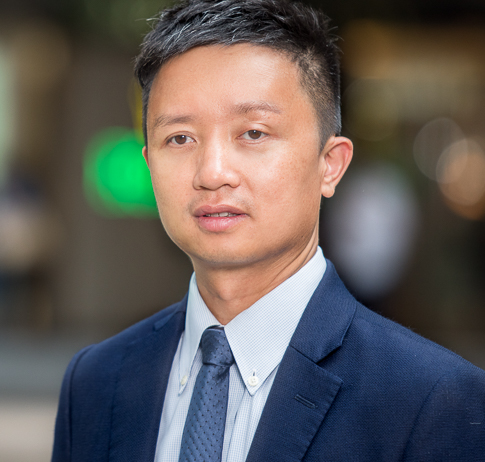#WorkingWorld #LGBT
Pride Parades in support of the lesbian, gay, bisexual, transgender (LGBTQ+) community are celebrated worldwide, as well as in many parts of Asia. However, LGBTQ+ rights are not recognised universally. Therefore, international businesses may find it difficult to implement global policies and strategies to advance diversity and inclusion. Hong Kong in particular is relatively behind other key financial hubs such as New York and London when it comes to recognising LGBTQ+ rights and promoting equality in the workplace.
Equality is noted in Hong Kong's Bill of Rights Ordinance ("HK Bill of Rights") and the constitutional document known as the Basic Law. Article 25 of the Basic Law stipulates that “all Hong Kong residents shall be equal before the law”.
Specifically, article 22 under section 8 of the HK Bill of Rights prohibits any discrimination and guarantees equal and effective protection against discrimination on grounds such as race, sex, language, religion, political views, or other opinion, national or social origin, property, or birth or other status.
As discrimination on the basis of sexual orientation is not explicitly included in the HK Bill of Rights, members of the LGBTQ+ community have little protection and are not always afforded equal rights.
As of today, Hong Kong's legislation only recognises marriages between a man and a woman. However, in spite of this, there have been two recent court cases which have ruled in favour of LGBTQ+’s rights and represent small wins for the community:
Case 1. Challenging the refusal of a visa application on grounds of discrimination based on sexual orientation
QT v Director of Immigration FACV 1/2018; [2018] HKCFA 28
QT and SS entered into a same-sex civil partnership in 2011 in the UK. SS was offered employment in Hong Kong and was granted an employment visa. SS applied for a dependent visa for QT, which was available to spouses and dependent children, but this was refused due to the policy limiting spouse visas to couples in a heterosexual marriage.
QT challenged the Director of Immigration's refusal of a dependent visa application on the ground that this was discrimination based on sexual orientation. The Court of Final Appeal (CFA) ultimately ruled in favour of QT and found that the differential treatment was not justified and was also counterproductive to attracting talent.
Case 2. Securing family employment benefits in Hong Kong for same sex couple who married in New Zealand
Leung Chun Kwong v Secretary for the Civil Service, Commissioner for Inland Revenue [2018] HKCA 318; [2018] 3 HKLRD 84; [2018] 6 HKC 173; CACV 126/2017
Mr. Leung, a Senior Immigration Officer and Hong Kong permanent resident, legally married his same sex partner, Mr. Adams, in New Zealand. Mr. Leung's employment contract entitled him and his family to receive certain medical and dental benefits from the Civil Service Bureau. (CSB).
Mr. Leung sought to access the benefits that he and his family were entitled to under his employment contract by updating his marital status with the CSB and filed for a joint assessment of taxes under the Inland Revenue Ordinance. Both applications were at first denied, stating the reason that same-sex marriage fell outside Hong Kong’s definition of marriage, so Mr. Leung applied for a judicial review of both decisions.
In June 2019, the CFA unanimously ruled in favour of Mr. Leung on both issues. The CFA held that there was no rational connection between denying Mr. Leung employment and tax benefits and the aim of protecting the institution of marriage in Hong Kong.
What might the future hold?
These two recent cases indicate that there is a growing support for LGBTQ+ rights in Hong Kong. Following the judgment of QT v SS, the Immigration Department has updated its eligibility criteria for dependent visas to include dependents in a same-sex marriage.
However, the rights of local same-sex partners remain unprotected and the government has been reluctant to review and rectify other social policies that affect the core livelihoods of local same-sex partners.
Likewise, the victory in the Leung Chun Kwong decision falls short of a breakthrough as it only recognises the spousal benefits of same-sex partners in the public sector, while same-sex partners in the private sector are subject to their employer's own policies.
Workplace changes in Hong Kong
Despite the fact that same-sex marriage is still not recognised in Hong Kong, the government has begun to recognise the increasing importance of protecting the LGBTQ+ community in the workplace and has issued (through the Constitutional and Mainland Affairs Bureau) the Code of Practice against Discrimination in Employment on the Ground of Sexual Orientation (the "Code of Practice"), for employers in the private sector to adopt.
The Code of Practice sets out guidelines to facilitate self-regulation on the part of employers and employees in eliminating discriminatory practices and seeks to promote equal employment opportunities among all persons – irrespective of their sexual orientation.
While the Code has no statutory force, organisations are encouraged to adopt the Code of Practice as a public demonstration of their commitment to anti-discriminatory practices. As of May 2019, the Code of Practice has been adopted by approximately 230 companies in Hong Kong.
Could the tide finally be turning in Hong Kong? It certainly looks that way, and we'll be keeping a close eye on developments.
For more on our #WorkindWorld campaign please click here.
To read more of our LGBT+ and diversity content please click here.
First published 30 September 2019.

